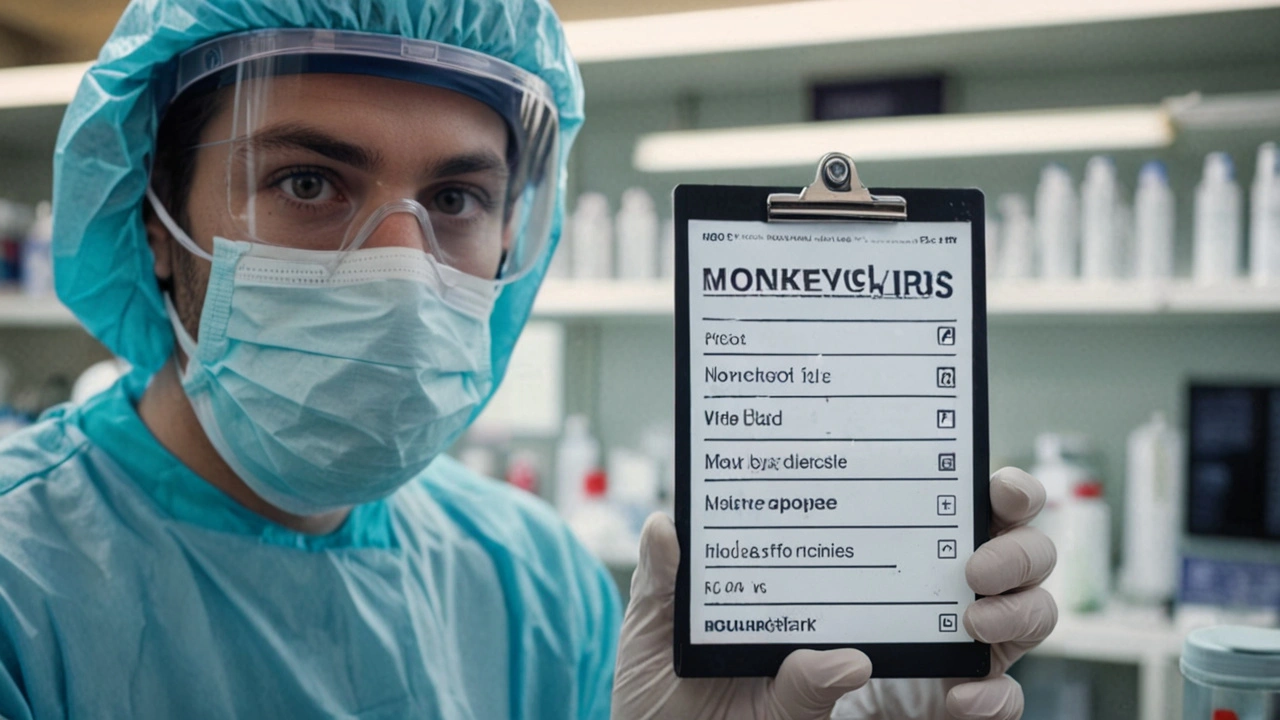South Africa's Vigilant Response to Increasing Mpox Cases
South Africa is currently on high alert after the confirmation of two additional cases of monkeypox, also known as Mpox, in the KwaZulu-Natal region. The new cases involve two men aged 40 and 26, bringing the national total to six confirmed cases. These recent developments have prompted the Department of Health to intensify its efforts in contact tracing and case finding, aiming to curb the potential spread of the disease.
Mpox Cases Detected in KwaZulu-Natal
The emergence of these new Mpox cases in KwaZulu-Natal has raised significant concerns among health officials. The two affected individuals have undergone laboratory tests that confirmed the presence of the virus. This discovery is part of ongoing surveillance and monitoring efforts aimed at identifying and controlling the spread of Mpox within the country. The disease, known for symptoms such as rash, fever, headache, muscle aches, back pain, low energy, and swollen glands, poses a considerable public health challenge.
Symptoms and Transmission of Mpox
Mpox is transmitted through close contact with infected individuals or contaminated materials. This includes direct contact with lesions, body fluids, respiratory droplets, and even sexual contact. The infection's incubation period ranges from five to 21 days, making it crucial for public health authorities to track and contain any potential outbreaks. Early identification and isolation of cases are essential to prevent further transmission within the community.
Heightened Vigilance and Public Cooperation
The Department of Health is calling for heightened vigilance and public cooperation in managing the Mpox outbreak. As part of their response strategy, they have ramped up efforts in contact tracing and case finding. These measures are designed to quickly identify and quarantine individuals who may have been exposed to the virus. By doing so, health officials aim to prevent Mpox from spreading further within the population. Transparency and cooperation from the public are emphasized as critical components in this public health effort.
Public Health Advice
The public is urged to stay informed about the symptoms of Mpox and seek medical attention if they experience any signs of the disease. Individuals are advised to report any suspicious symptoms to their healthcare providers and to adhere to recommended precautions to reduce the risk of transmission. These include practicing good hygiene, avoiding close contact with infected individuals, and following guidelines issued by health authorities.
Preventive Measures and Community Health
Preventing the spread of Mpox requires a concerted effort from both health authorities and the community. Public health campaigns are being launched to educate citizens about the disease, its transmission, and effective preventive measures. These initiatives aim to foster a well-informed public that can take proactive steps in protecting themselves and their loved ones from infection. Such collective actions are vital in mitigating the impact of the Mpox outbreak and ensuring the health and safety of all South Africans.
Global and Regional Context
Mpox is not confined to South Africa; it is a global health concern. The recent cases in KwaZulu-Natal highlight the interconnected nature of public health challenges in an increasingly globalized world. To address these challenges effectively, international cooperation and information sharing are essential. South Africa's response to Mpox will benefit from lessons learned in other regions that have faced similar outbreaks. By collaborating with global health partners, the country can enhance its capacity to manage and contain the disease.
Future Outlook
As South Africa navigates this health challenge, continued vigilance and proactive measures will be necessary to protect public health. The recent Mpox cases serve as a reminder of the importance of maintaining robust surveillance systems and rapid response mechanisms. By building on existing public health infrastructure and fostering community engagement, South Africa can effectively address the Mpox outbreak and safeguard the well-being of its citizens.







Madison Neal
The recent Mpox surge in KwaZulu-Natal underscores the necessity for robust epidemiological surveillance systems that can detect zoonotic spillover events promptly. Public health officials must deploy granular contact tracing protocols that leverage both manual interviewing and digital exposure notification tools. Incorporating syndromic surveillance data from primary care clinics can enhance early case identification before widespread community transmission. Moreover, the virological characterization of the circulating strain should be disseminated to regional laboratories to standardize diagnostic criteria. Preventive measures ought to include targeted vaccination for high-risk cohorts, such as healthcare workers and individuals with immunocompromising conditions. Community outreach programs need to be culturally tailored, employing local languages and trusted community leaders to disseminate accurate information about symptomatology and transmission pathways. The integration of mobile health platforms can facilitate real-time reporting of suspected cases, thereby reducing the diagnostic lag. It is also critical to ensure that personal protective equipment (PPE) supply chains remain resilient to avoid nosocomial transmission within hospitals. Reinforcing infection prevention and control (IPC) training for frontline staff can mitigate secondary spread. Health education campaigns should emphasize the distinction between Mpox and other exanthematous diseases to avoid diagnostic confusion. Leveraging existing HIV/AIDS outreach infrastructure could provide a ready-made conduit for Mpox education, given the overlapping risk groups. Continuous risk communication must balance urgency with reassurance to prevent public panic. The Ministry of Health should consider scaling up laboratory capacity, including PCR testing throughput, to meet increased demand. Cross-border collaboration with neighboring countries can facilitate data sharing on case clusters and genomic sequencing results. Finally, a sustained investment in public health infrastructure will be pivotal not only for Mpox containment but also for future emerging infectious disease threats.
John Crulz
The situation definitely calls for a balanced approach-mixing solid science with everyday practicality. While the health department ramps up contact tracing, folks should keep up routine hygiene like washing hands regularly and covering any lesions if they appear. It’s also wise to stay updated through official channels rather than getting caught up in rumor mills. If you’ve got a window of time, checking in with your local clinic about the latest guidance can be a simple yet effective step. Remember, the incubation window can be up to three weeks, so staying vigilant even after the immediate news cycle is key. That said, don’t let the fear spiral; a measured response helps keep the community calm and cooperative.
Anita Drake
It's crucial that we all play our part in supporting the public health effort, especially in regions like KwaZulu-Natal where resources may be stretched. Sharing culturally relevant information can help bridge gaps and ensure that everyone understands how to protect themselves and their families. By listening to community concerns and addressing them with empathy, we foster trust and encourage cooperation. Let’s also remember to respect diverse experiences and make sure that outreach is inclusive of all language groups and ages.
Eduardo Lopez
Honestly, this is a stark reminder that complacency has no place in public health. The drama of rising cases should serve as a catalyst for personal responsibility and collective vigilance. If we ignore the warnings, we become complicit in the spread, and that’s a narrative no ethical society can afford to endorse. So, let’s rise above idle chatter and commit to the recommended precautions-no excuses.
Nancy Perez de Lezama
Stay aware and follow the guidelines.